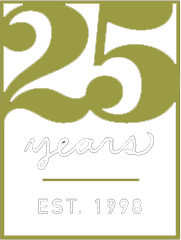It is an accepted fact that recruitment is not an exact science. No one is ever 100% certain about a recruitment decision, but what if you simply hadn’t asked suitable interview questions to banish the uncertainty? Too many interviewers leave the interview room with mixed feelings simply because they haven’t dug deep enough to satisfy their uncertainty. Candidates are fully aware of the information that they need to get across to be considered competent for a role, but if the path of the interview does not allow them to do so, uncertainty will reign.
This is easy to suggest for an interviewer, but far harder to do in practice.
Allow time for eradication of uncertainties
Interviews are often only 40-60 minutes long and filled with standard competency questions, but there should always be ample time allowed for the eradication of uncertainties. Interviewers should always be given the opportunities to ask the questions that fill in the gaps and complete their mental picture of whether a candidate will work well in their organization.
The interviewer who leaves the interview room having answered their nagging questions is an interviewer who knows their mind.
Highlight your strengths
From a candidate perspective, it is also useful to sense where the uncertainties lie. If you sense that the interviewer is uncertain, give more information, ask them questions about exactly what they require from you so that you can demonstrate the required competencies.
Any interview is a two-way conversation and both parties need to work at eradicating uncertainty. Making the right recruitment decision rides on it.
We often coach candidates before an important interview, and remind them that the quality of the interview does not solely rest on their heads, by the answers they put forth. It is also based on the quality of the questions asked of them, and if they will truly reveal what the hiring managers are seeking to find. If the interviewer is lacking in their interview questioning, delivery and/or format, this could lead to a solid candidate being passed up for the wrong reasons. So, I often encourage candidates to bring a notebook with them to their interview, with a list of their most important strengths and accomplishments as they pertain to the job they are interviewing for. As the interview progresses, they should look for opportunities throughout to cover all they have on this list. It’s their safety net to a poor interviewer asking questions that could be of better calibre.
Take ownership of the interview
Great companies don’t always have everything figured out, and we’ve met many who are still maturing in how they interview. If you are a quality candidate you will take stock of your strengths and your most significant accomplishments in your career, and as I’ve mentioned here, spoon-feed them, one by one, to the people in your interviews to ensure that by the time the interview ends, you will have done yourself justice by showcasing all your most important skills, experiences and accomplishments as they pertain to the job you are there for.
This is what it means to take ownership of your own job search: ensuring that you are not just passively answering the questions asked of you, but delivering your best answers by weaving each point on your strengths list where ever possible. If you are close to the end of your interview and you find there are still one or more things on your list, not yet covered, then bring it up! Find a way to do this in a manner that tells the hiring manager you want them to know this fact about you. As a suggestion you could say “I’m not sure if there are any other questions we’ll cover but I have 1 or 2 important pointers about me I’d like to share with you before we wrap this up.” And if one of them involves telling a story about your experience in an area of interest, even better as it’ll help them visualize you doing this job.
In ending, while this article was about exploring different types of uncertainties in the assessment of candidates during an interview, the real message is to candidates: You cannot control how effective your interviewer is going to be, and since there is some vulnerability in that for you, take charge of the outcome of the interview by bringing your list of core competencies, strengths and examples of a story or two you can explain to help articulate your most significant accomplishment(s) to date. The right managers will thank you for it, as you also made their job just a little bit easier.
Working with Insight Recruitment
If you are interested in working with a recruiter who partners with you throughout the interview process, Insight Recruitment is here to help you. Our candidates value our coaching style and partnership approach because it helps them elevate their own interview performance. See for yourself some of the things they’ve said about us at: Insight testimonials. We’d love to work with you so Contact Us today.


